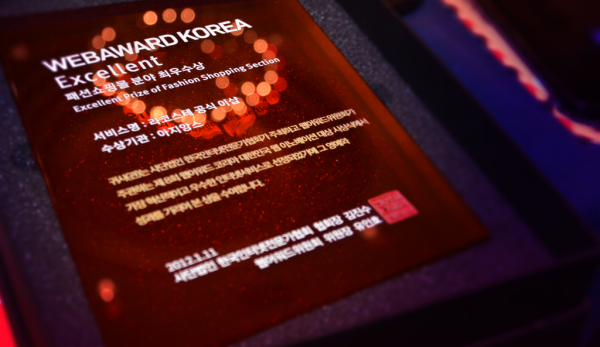By Olivier Mouroux, CEO & co-founder at Asiance and vice-president of the FKCCI
Since the early stages of the COVID-19 pandemic, South Korea has properly implemented technological tools that have enabled the country to not only quickly overcome the crisis, but also continue its economic activities in the context of self-containment and social distancing of its population.
Through huge investments in IT infrastructure in the past two decades, Korea has grown into a digital powerhouse. While Korea has been ranking third in the world in the ITU (International Telecommunications Union) since the turn of the century, it has since established itself even further last year as the first country in the world to make a successful transition into 5G. With 5 million users within a year of launching, 5G quickly spread among Korean “early adopters” who were eager to experience the new service.
This is indicative of the Korean population’s appetite for new technology. Koreans have little objection to learning new skills in their daily lives. In addition, the ecosystem of the Korean digital sector is unique, with local tools, and an approach to data that is very different from the use of American tools, as in France. The data is considered Korean and will remain in the Korean environment; in special circumstances, the government is transparent about the use of the data for strictly specific uses, such as during MERS or SARS, and now COVID-19.
Telecommunications company KT is working closely with the government to prevent the spread of COVID-19, providing necessary information for the government-developed epidemiological investigation system. This national mobile application helps visualize the movements of the population to better understand the spread of the disease. In 2016, KT had already developed a big data analysis platform, namely the Global Epidemic Prevention Platform, that can track the path of viruses.
In addition, the government is also conducting epidemiological investigations using data from credit cards, GPS, and CCTV. All this has made it very easy to identify the pathways of confirmed COVID-19 patients and possible contacts, to prevent secondary or tertiary infections. It doesn’t end here: those who have been quarantined or have returned from abroad are directed to report their health status in real-time using a mobile application (available in several languages) or by receiving calls via AI. The AI call system helps connect with the surrounding medical staff if treatment is necessary.
Surprisingly, the country has also managed to overcome the deeply rooted and rigid working culture by successfully implementing remote work. This shift has radically changed the Korean working structure. Investments and significant improvements in IT infrastructures are being made across the country, and the general population’s familiarity and knowledge of digital tools have enabled them to work remotely without much difficulty.
As a result of such changes, the digital ecosystem is thriving. During March, internet traffic increased by 13%, Koreans spent an average of 4 hours daily on their mobile applications, second in the world after China (5 hours). Some collaborative platforms like Jandi – Toss Lab saw their traffic multiply tenfold during this period. The local giant Naver has also seen a sharp increase in its Line Work collaborative platform. Online sales increased sharply with a 25% increase in purchase during February, for a total figure of nearly US $ 10 billion for that month, 81% of which were made on mobile. This explosion in sales allowed Coupang to become the industry leader ahead of Gmarket, with a 24.6% market share in the first quarter, thanks to its express service “Rocket Delivery”.
Active responses are being taken aside from the government level as well. The messaging company Kakao, equivalent to WhatsApp in Europe, has made the quick viewing of the inventory of masks available in stores and pharmacies throughout the country readily available to its 40 million users (80% of the population). The fact that Kakao is 100% Korean makes it possible to quickly offer technical solutions to the population, which is not the case in France.
Major Korean groups reacted quickly by creating technological solutions, such as LG CNS, an IT services company from the LG conglomerate, which developed an AI application for its employees to detect mask guideline adherence and automatic temperature detection at the entrance of their building. Samsung too decided to share its “smart factory” know-how with mask producers to respond to the exploding demand.
Beyond the major conglomerates, start-ups and individual initiatives have played an important role in proposing quick solutions to counter the spread of the virus as well. Lee Dong-hoon, a student, for example, made an interactive map available to the public with the latest government emergency notifications to provide real-time alerts about new confirmed cases at https://coronamap.site/. Biotech company Seegene has managed to launch the production of COVID-19 test kits in less than 3 weeks to reduce the waiting time for results from 24 to 6 hours. 80% of the kits that are provided to the Korean population are produced by this company. Another Biotech start-up, Sugentech, has developed a serological test to diagnose potential patients in just 10 minutes. Finally, Ahram Biosystems and Doknip Biopharm have teamed up to produce a portable battery-powered analysis device that can identify the virus in just 30 minutes.
Having faced and overcome crises that have hit the peninsula over the years, Korea has developed a strong group mentality linked to the massive use of digital tools. At the turn of the 20th century, it decidedly became the first IT power in the world and established its reputation internationally. Its role in the G20, as well as the government’s decision in April to share its data with researchers around the world via the “OpenData4Covid19” project, further reinforces this reputation as tried and true. Today, it is indisputably apparent that Korea is capable, and has proven this capability in the face of the crisis with its unparalleled response to date.
Translated from: https://bit.ly/2WE7ADH












